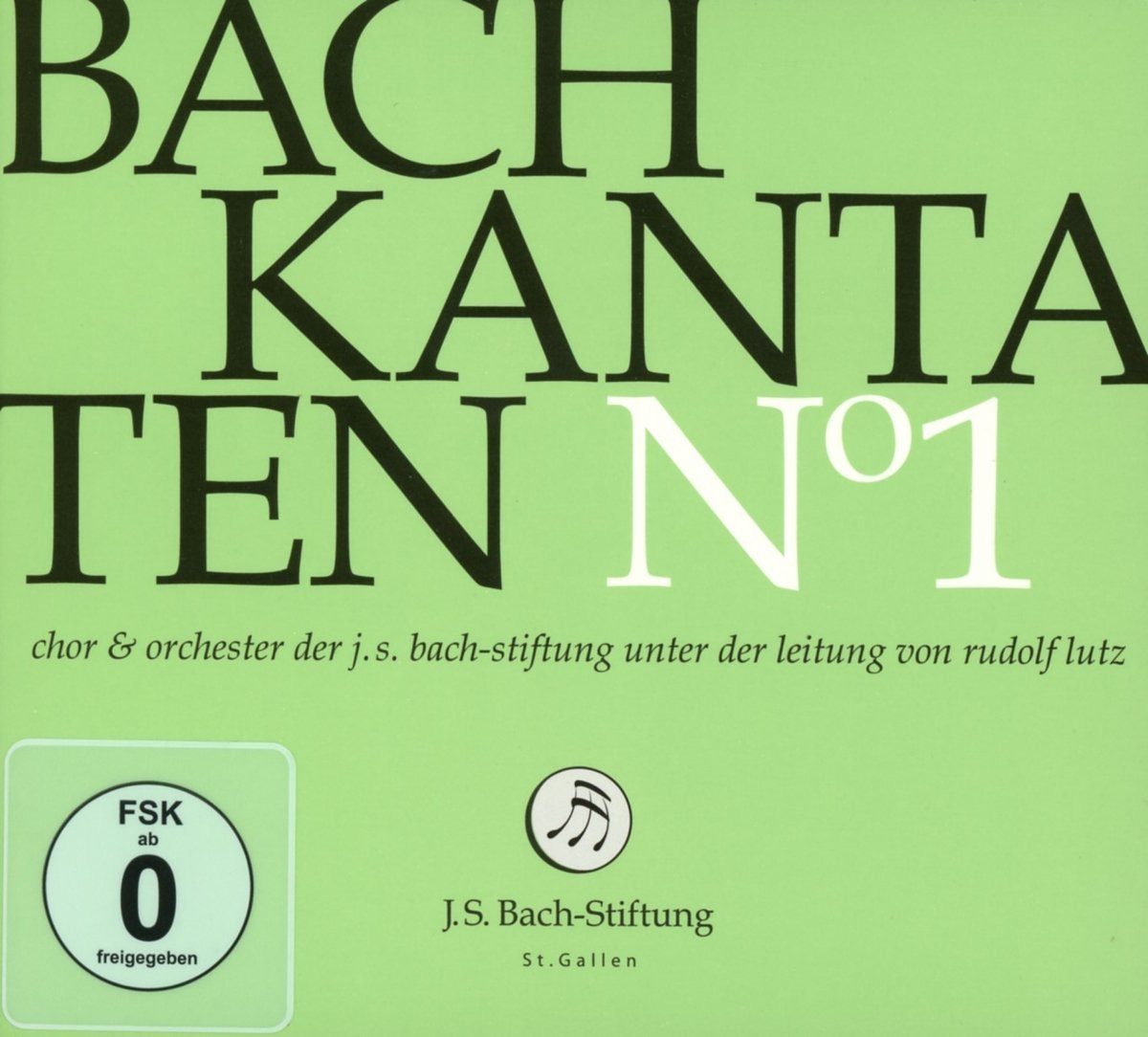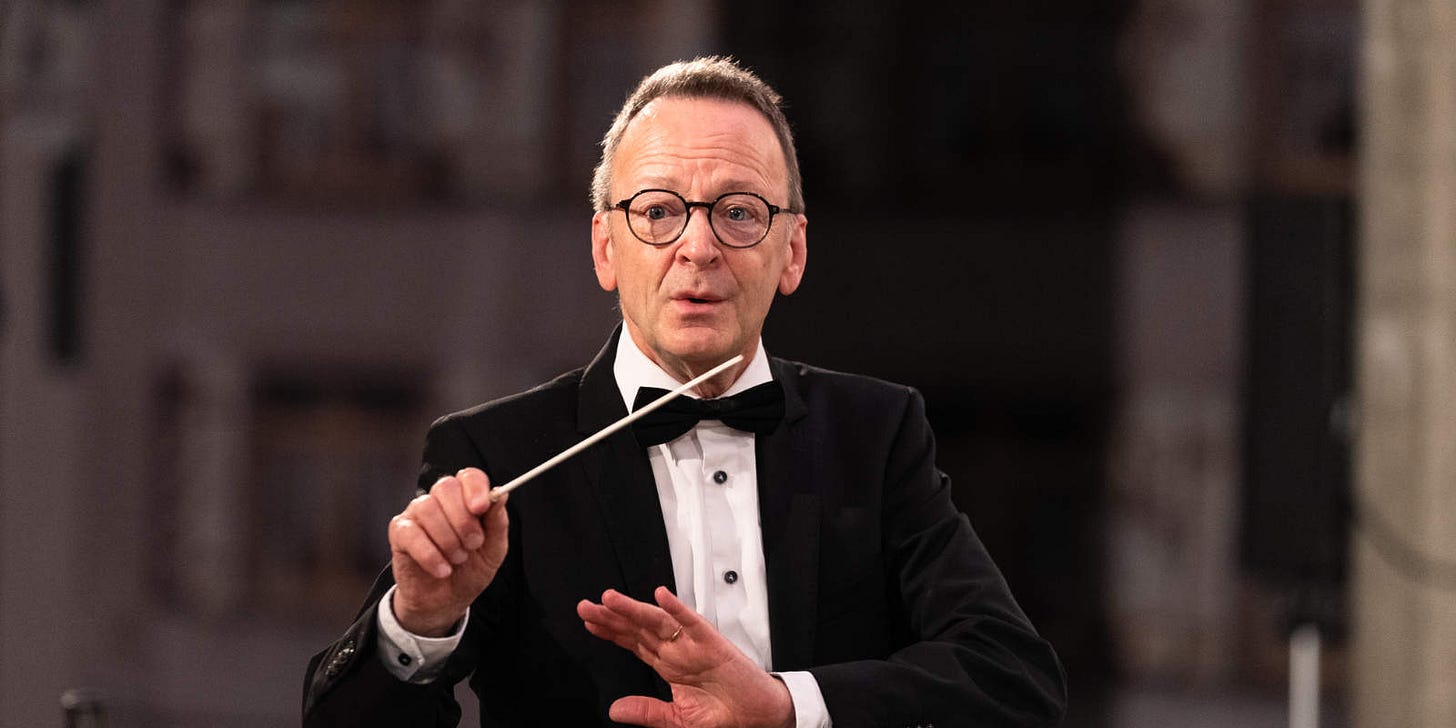April 15: Cantatas (BWV 31, 81, 129, 147, 182); Orchester der J.S. Bach-Siftung; Rudolf Lutz, conductor
Great artists know when they have a hit.
Back in 1995, my music theory classmates and I watched a VHS of the Metropolitan Opera’s glamorous performance of “Turandot.” At 17, I wasn’t quite ready for opera, but I sure liked the big tune, “Nessun Dorma” (“None Shall Sleep.”)
Here’s Puccini’s all-time famous lick, sung here by Pavarotti, why not:
(My favorite part of the aria is the tense and moody chord that repeats before the chorus, torqueing the tune towards an epic release. Listen for it at 0:03, 0:08, 0:16, and 0:21 below):
One other moment stayed with me for all these years: Puccini brought the song back in the final triumphant scene, even though it makes no dramaturgical sense there. (Our suitor’s name is now known, he’s won his wife, everyone’s allowed to sleep again, etc. etc.) Here’s the reprise to close out the show (from conductor Anthony Pappano):
Puccini died before finishing the opera, but his designated successors surely realized there was a giant hit song in the second act, and they weren’t going to let it go to waste. They knew “Nessun Dorma” would be hummed on the way out the door — they’ve been right for nearly 100 years.
I had a familiar feeling when listening to Bach’s Cantata BWV 147, which features one of the most famous tunes of all time, commonly known as “Jesu, Joy of Man’s Desiring”:
Bach brings the theme back in Movement 10 to close out the piece! I can’t remember that tactic in any of other cantatas I’ve heard for this project. Here’s the reprise:
He knew he had a hit. So good you gotta play it twice.
It’s hard to listen to this very familiar track with fresh ears, but I am always struck by how life-affirming it is. This song always makes it feel like it’s a good day to be alive. How many others are like this? Maybe “Amazing Grace.” “Let it Be”? U2’s “In the Name of Love” also came to mind, no judging, friends.
The performances of the cantatas I’m writing about today are from the Orchester der J.S. Bach-Siftung conducted by the Swiss Rudolf Lutz. These recordings sound great, but the interpretations have a little too much pep in their step for me. They’re breezy and sometimes even a bit cute, and I didn’t often connect.
The start of Lutz’s BWV 182 has the shortest possible note you can plan on an organ, it feels cheeky, plunky-plunk-plunk:
Compare it to the same opening by the Leonhardt Baroque Ensemble conducted by the excellently named Jürgen Jürgens:
I guess I like my Bach with a little more gravitas. (I prefer my Beethoven to be performed as if every note was altering the course of all human events, and perhaps also the Earth’s rotation. I take my Mozart with cream and sugar, and my Reich with an actual edible.)
Some highlights from this set:
BWV 31 was my overall favorite of the bunch. The opening is a good example of the terrific recording quality — listen to the balanced strings:
Lutz is going too fast in the second movement, but makes a nice transition to sweeping legatos (0:20):
How low can you go, basso?:
The seventh movement is a devotional recitative sung by Julia Doyle. There’s a fantastic, ethereal quality to her voice — I imagined a very petite woman with long black hair in a diaphanous gown emerging from the woods, like a Celtic nymph.
I looked her up - Doyle is very lovely, but she is not a sprite from the forest. That said, she hails from Lancaster, England, not 100 miles from the Scottish border, so I must have heard something in there. (I think the vibe I channeled is most pronounced at 0:14 above.)
In the opening of BWV 81, our alto is nice and spooky at the bottom of her range:
Big, brawny singing in the fifth movement, Schvieg, Schvieg!:
A bonus track to close out today:
There have been many guitar recordings of “Jesu”, but my favorite is the steel-string version by Leo Kottke from his 1969 breakthrough album, “Six and Twelve String Guitar." This is folk music, the time is more casual, but it’s a very serious performance nonetheless. Leo clearly loves the tune, and he created music for us to love in return:






